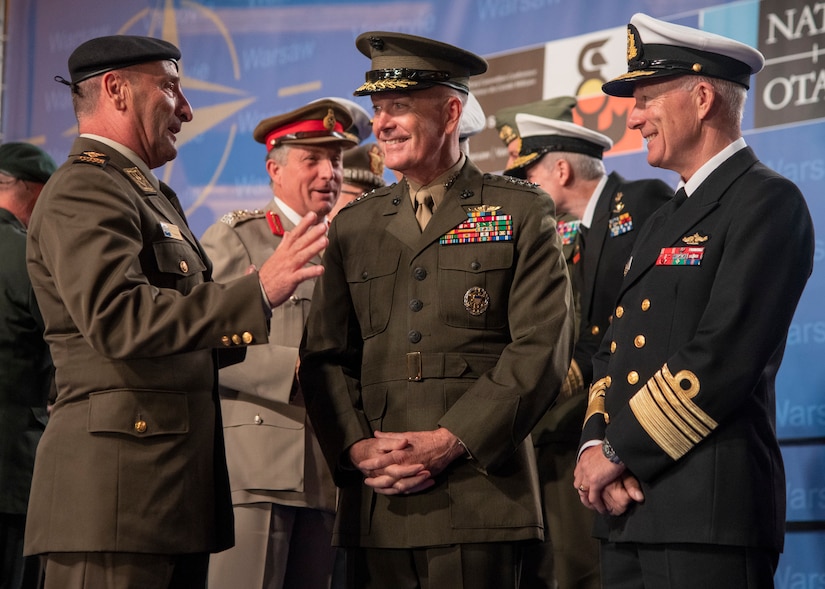By Jim Garamone, DoD News, Defense Media Activity
MADRID -- The challenges the United States sees from Russia
and China are similar because both have studied the America way of war, the
chairman of the Joint Chiefs of Staff said yesterday.
Marine Corps Gen. Joe Dunford is here visiting Spanish
officials after attending the NATO Military Committee meeting in Warsaw,
Poland, over the weekend.
The bottom line for the United States and the country’s
greatest source of strength strategically “is the network of allies we’ve built
up over 70 years,” Dunford told reporters traveling with him. At the
operational level, he added, the U.S. military’s advantage is the ability to
deploy forces anywhere they are needed in a timely manner and then sustain
them.
“Russia has studied us since 1990,” Dunford said. “They
looked at us in 2003. They know how we project power.”
Russian leaders are trying to undermine the credibility of
the U.S. ability to meet its alliance commitments and are seeking to erode the
cohesion of the NATO alliance, he said.
Russia has devoted serious money to modernizing its
military, the chairman noted, and that covers the gamut from its nuclear force
to command and control to cyber capabilities. “At the operational level, their
goal is to field capabilities that challenge our ability to project power into
Europe and operate freely across all domains,” Dunford said. “We have to
operate freely in sea, air and land, as we did in the past, but now we also
must operate [freely] in cyberspace and space.”
The nature of war has not changed, but the character of war
has. The range of weapon systems has increased. There has been a proliferation
of anti-ship cruise missiles and land-to-land attack missiles. Cyber
capabilities, command and control capabilities and electronic warfare
capabilities have grown.
Great Power Competition
These are the earmarks of the new great power competition.
Russia is the poster child, but China is using the same playbook, the chairman
said.
“What Russia is trying to do is … exactly what China is
trying to do vis-a-vis our allies and our ability to project power,” Dunford
said. “In China, what we are talking about is an erosion of the rules-based
order. The United States and its allies share the commitment to a free and open
Pacific. That is going to require coherent, collective action.”
Against Russia, the United States and its NATO allies have a
framework in place around which they can build: a formal alliance structure
allows the 29 nations to act as one, Dunford said.
However, he added, a similar security architecture is not in
place in the Pacific.
The United States has treaties with Australia, New Zealand,
Japan, South Korea, the Philippines and Thailand. Politically and economically,
the United States works with the 10-nation Association of Southeast Asian
Nations.
“I see the need for all nations with an interest in the
rules-based architecture to take collective action,” Dunford said. “The
military dimension is a small part of this issue, and it should be largely
addressed diplomatically and economically.”
He said the military dimension is exemplified by freedom of
navigation operations, in which 22 nations participated with more than 1,500
operations in the past year. “These are normal activities designed to show we
will fly, sail and operate wherever international law allows, and not allow
illicit claims to become de facto,” the chairman said.

No comments:
Post a Comment